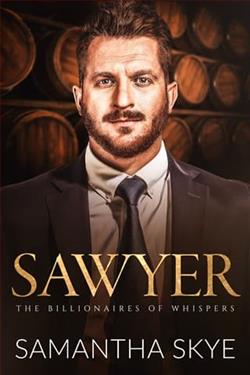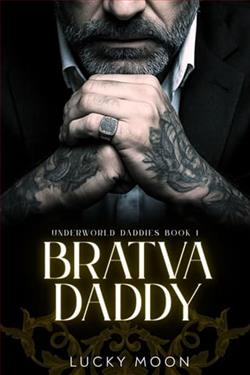Page 71 of Audacity
Athena
From the unwieldiest, most haphazard beginnings, Gabe and I begin to build this idea of an actual, formal foundation. It takes shape slowly but steadily, emerging from the cauldron of the Sullivans’ well-meaning charitable efforts in a form that’s commercial and inspiring and sustainable… and, dare I say it, viable?
I haven’t had this much fun since I had to build a “lean startup” as part of our MBA course. A group of us mocked up a fintech platform that connected female entrepreneurs with female angel investors. I got so intellectually invested that I almost wished I’d had the chance to build it out. It wasn’t the altruism that hooked me—unless I’m giving head, I don’t have an altruistic bone in my body—but the untapped market potential. So many brilliant female entrepreneurs get overlooked by traditional funding models.
It was simply good business sense.
Anyway, this foundation reminds me of that. I’ve been obsessively focused on the access, the exposure, this career can offer since I took Camille’s bait that evening at the Musée Rodin. That can mean learning directly from men and women at the highest levels of management, but what I’m starting tounderstand is that it can also mean grass-roots experiences. The opportunity to make suggestions that will be heard and considered and even actioned. The chance to be a player in the game.
I’ve always said I want todo, not to advise. I want to be instrumental in shaping a company’s fortunes, in forging its DNA. And this audacious plan to take a blank sheet of paper and put hundreds of millions of pounds to work in changing lives on the ground,in a real, tangible way,has given me the biggest commercial boner of my life.
I feel as though I’m thrumming. I’m in a constant state of inspiration. The more engrossed I get in assisting Gabe in thrashing the shape of this thing out, the more the neurons fire in my brain. And the more they fire, the more my entire body acts as a conduit. It’s like he could plug me into the mains and make this entire dream a reality by virtue of this insane electrical charge I’m transmitting.
He teases me about it—mercilessly, in fact—but he’s fired up, too, to an extent he claims not to have experienced since he walked away from his vocation. He’s essentially cut Eleanor and Torty out of the project, telling them with his signature blend of charm and sincerity that we’re still very much at the brainstorming stage. While I have no qualms about demanding facts and figures from them when we need them, he and I have found that keeping the circle small allows us to foster that element of playfulness, of free-thinking, that’s so crucial at this stage. We’re a tiny and highly excitable incubator, basically.
In the weeks following that initial meeting with Gabe’s family, he and I have made it our mission to get out and about as much as possible, walking the streets in the areas where his family’s land is situated. It’s not continuous but instead is focused on huge lots where his grandfather’s construction business built enormous complexes and negotiated land as part-payment in a way that then was risky and now seems incredibly prescient.
The River Thames meanders into London from its eponymous estuary in the east. It flows past Essex on its northern banks and Kent to the south. As it does, it forms a curious U-shape in which lies Canary Wharf, the weird and soulless extension of the City’s financial district. While Gabe’s grandfather wasn’t involved in the development of Canary Wharf in the Nineties, he already owned a lot of the land around it, on the north side of the Thames.
And while a good proportion of the Docklands area has been gentrified, behemoths of the Industrial Revolution such as warehouses and factories converted into aspirational apartment blocks, far too much of it is still underinvested and desperately poor.
Gabe’s security detail takes us to these areas by car, but he insists that nothing engenders understanding like walking the streets. It’s the same reason, he claims, that our police force patrols communities on foot and priests and nuns must be present in the same communities. You can have MBAs coming out of your ears—I think that was a dig at me—but if you don’t take the time to observe first-hand, to talk to the people who have built their lives here, you’ll never have an edge.
And you’ll never understand what is needed.
My (private) response to that is that this former priest is happy as a pig in shit on these missions of ours. We turn up at senior centres and he does the rounds, smiling and shaking hands and actually, trulylistening.I swear, presidential candidates would kill for this man’s devastating brand of ego-free charm. We visit state-funded nurseries and crèches, and he wants to play with every child.
Those visits elicit a strange cramping in my general ovarian area which I try not to examine too closely. Any female observer would have the same reaction.
His sister Mairead accompanies us on a couple of these trips, her focus squarely on green space and sports. I find I like her a lot. She’s refreshingly direct—a quality I rate highly—and clearly cares a lot about getting more kids outdoors, but her arguments always sit squarely in the practical realm. Never do I have to reel her back in from some outlandish or unfeasible suggestion.
Brendan joins us on other outings. Of course, Sullivan Construction has built most of the buildings we visit. I find I prefer him in work mode. He’s still a super-confident guy, comfortable taking up space in a way I don’t believe Gabe is, but here his confidence comes from vast experience and what I’d deem street-smarts. He’s savvy, with great judgment, and it seems to stem mainly from sound instincts.
As we carry out these field trips, our mission grows clearer, like a photograph emerging from a bed of chemicals in a dark room. Gabe’s an old-school pen and paper guy—he claims it helps him think more clearly—so we devote a wall in his office to an over-engineered montage of photos and maps and sketches and inspirations and faces and one-word prompts and question marks that could be straight out of a TV police procedural.
A business within a business. A non-profit that asks the right questions and thinks smart and stays nimble and helps to fund itself and changes thousands and thousands of lives, transforming education and community and career prospects.
It’s business school crack, that’s what it is.
Between the field trips, and the endless hours speculating and imagining with Gabe, and the even more endless hours of admin and research that precede and follow every one of our sessions, and the rest of the day job that I still need to keep a firm handle on—oh, and all the epic, epic fucking—it’s a lot. This evening, I’ve dragged myself to a power yoga class at the very swanky gym on Berkeley Square that I joined when I started at Rath Mor. I treat exercise as low-level maintenance. I need to look good and have stamina for this job, but beyond that I don’t care for it much. I’ll never be an exercise queen.
Yoga’s the best of a bad lot, I suppose. At least I always step off the mat a marginally less aggressive version of the Athena who stepped onto it. Also, I get to work every large muscle group in my body at the same time as clearing my mind, which the efficiency-lover in me applauds.
It’s around nine when I get back to the office. I had fully intended on leaving my laptop at work for, you know, basic mental health and boundary reasons. But I inevitably found myself mulling over some of the ideas we’ve been tossing around for reinventing community spaces, and I want to ponder them further in bed.
I’m surprised, when I round the corridor from reception, to see light from Gabe’s office flooding through the doorframe. The man himself is in situ, speaking to an older woman who’s sitting across from him on the same sofa he likes to fuck me on, her back to me. Even so, I can see—and hear—that she’s weeping copiously.
It’s Mary, a sweet Irish woman who I’ve met a couple of times when I’ve stayed late. She does the evening cleaning shift with a handful of others, from what I understand.
I catch Gabe’s eyes and make an alarmed grimace. He presses his lips together and gives me a little nod that sayshi thereandI’ve got this.I return it and turn away from them, sliding behind my desk. If Gabe’s been working late, then I want to check my emails on my laptop before I head home so I can ensure he doesn’t require anything from me.
When he speaks, his voice is a low, reassuring murmur. It’s definitely his priestly voice, and I’m sure it’s soothed and healed countless parishioners over the years. ‘This is not something for you to grieve, Mary. I know it must have come as a shock, but?—’
‘But theshameof it!’ Her cry is explosive, her accent thickly West of Ireland. ‘Theshame, Father!’
That almost makes me snort. Dear Lord. Gabe can walk away from the priesthood, but clearly the poor man will never be able to truly walk away from the confessional. By virtue of his past experience and sweet nature, he’s eternally doomed to be a kindly ear for anyone looking to unload. And in this moment, he’s not a billionaire whose cleaner has cornered him but a man of God holding space for someone in spiritual need.
He clears his throat but doesn’t correct her, which is kind of him. I log in to my laptop while blatantly straining my ears, because this sounds juicy.















